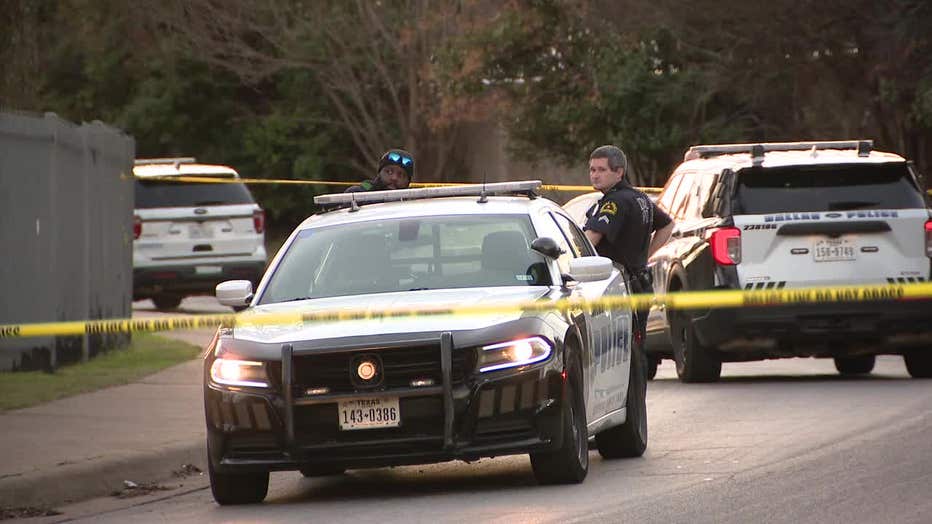Dallas police solved nearly 80% of its homicide cases last year

Dallas Homicides: 2024 Year in Review
The Dallas Police Department has one of the highest homicide clearance rates among big cities in the country. Here's a look at what it takes to solve cases.
DALLAS - Each time there’s a murder in the city of Dallas, one of the Dallas Police Department’s four homicide squads heads out, picking up whatever clues they can as quickly as they can.
"Regardless of whether it’s 3 p.m. or 2 a.m., we get a call from patrol. They’ll let us know we have a homicide, and we respond wherever we happen to be at that time," said Lt. Bobbie Epperson with the DPD homicide unit.
That dedication has led to the city having one of the highest homicide clearance rates among big urban police departments in the country.

By the numbers:
In 2024, Dallas recorded 183 homicides. During that same time period, detectives solved 145 homicide cases, including some from previous years.
That puts Dallas’ homicide clearance rate for 2024 at 79%.
The Dallas Police Department’s homicide unit is made up of four squads, each with seven to nine detectives, a sergeant, and a lieutenant.
When a call comes in, one of the four squads hits the streets.
"There’s one lead. They’re the primary point of contact on that case. Every other detective is playing support. We might need somebody to go to the hospital. We might need somebody to start pulling video from an apartment complex or from a business. We typically have witnesses to interview, so somebody will take care of that. There’s coordination with crime scene to make sure we have all the physical evidence accounted for," Lt. Epperson said.
Featured
VIDEO: Man pointing replica gun at cars shot by Dallas police
Dallas police are expected to release more information about a shooting that involved police officers earlier this week.
Big picture view:
Lt. Epperson said the make-up of a great detective is a person who is never "satisfied." It’s the man or woman who is bothered by an open case and always thinking about how to move an investigation forward.
"I want an open case to bother somebody. I want them to wak up in the middle of the night every once in a while and think about what they could do. Somebody they need to talk to or some way to develop the case, right? To me, a great detective is somebody that’s never satisfied with an open case," he said.
Changing technology has also changed how police solve crimes.
"There’s a lot going on, right? We have to try to keep up with that to keep the investigative edge. The way people communicate changes over time. The way they move the technology they use changes. So, it’s an ever-evolving profession for sure," Epperson said.
Newer technology can help connect ballistic evidence from one crime to other crimes and locations. And police are always on the lookout for security videos or cellphone videos that have been posted on social media.
"We’re going to see people coming and going. We’re going to get clothing descriptions, vehicles. Video is becoming more and more ubiquitous between cellphones between Ring cameras. Cars now have video," Epperson said.
Featured
Trackdown: Help find the Trinity Groves Christmas night shooter
There were several people around when Elliot Jimenez was shot and killed. However, no one bothered to help him. Instead, they were taking videos on their phones.
What you can do:
Dallas police also have a great partner in the public. Through Crime Stoppers, the DPD blog, and FOX 4’s Trackdown, good people share information that oftentimes points detectives in the right direction to solve a case.
"If we can’t figure out who someone is or a particular vehicle make or registration, we go to you, right? We go to Trackdown and then put it out to the public and try to get their assistance," Epperson said.
It’s assistant that the lieutenant said is critical.
"We can't solve a lot of these cases without people coming forward and helping us out," he said.
The Source: The information in this story is from the Dallas Police Department and an interview with Lt. Bobbie Epperson.



